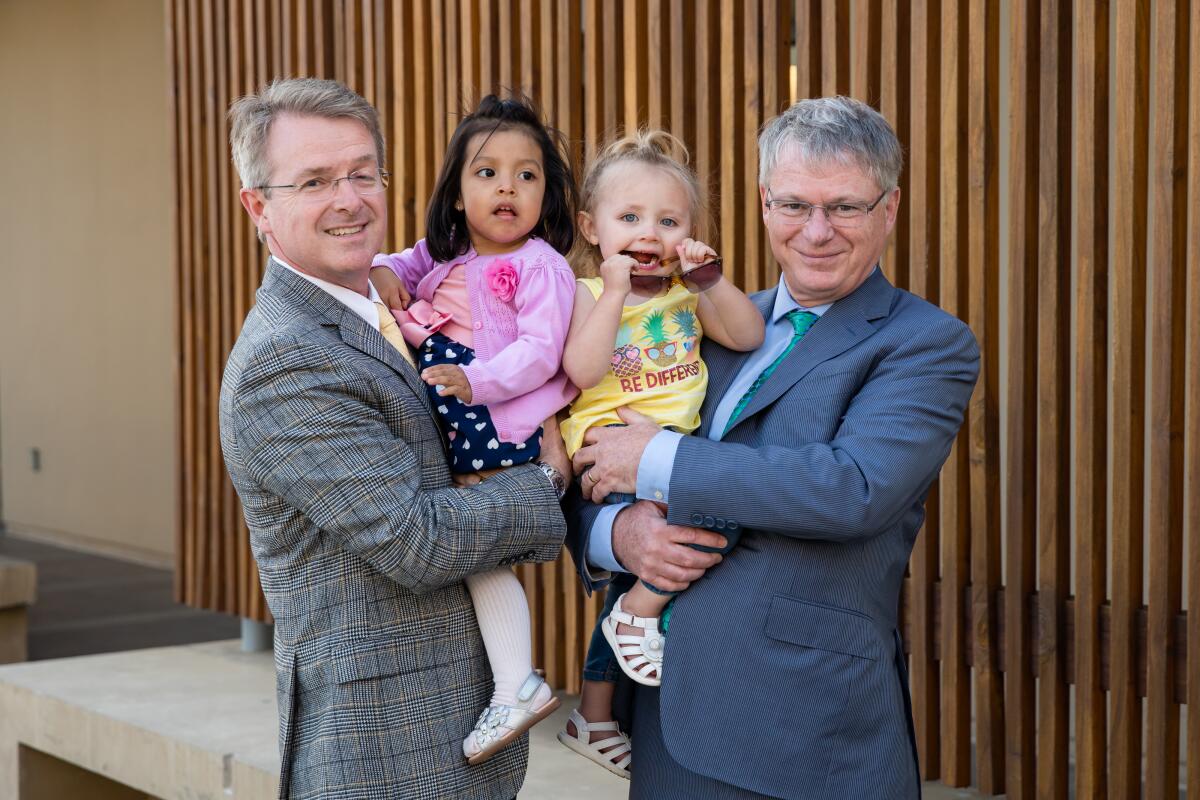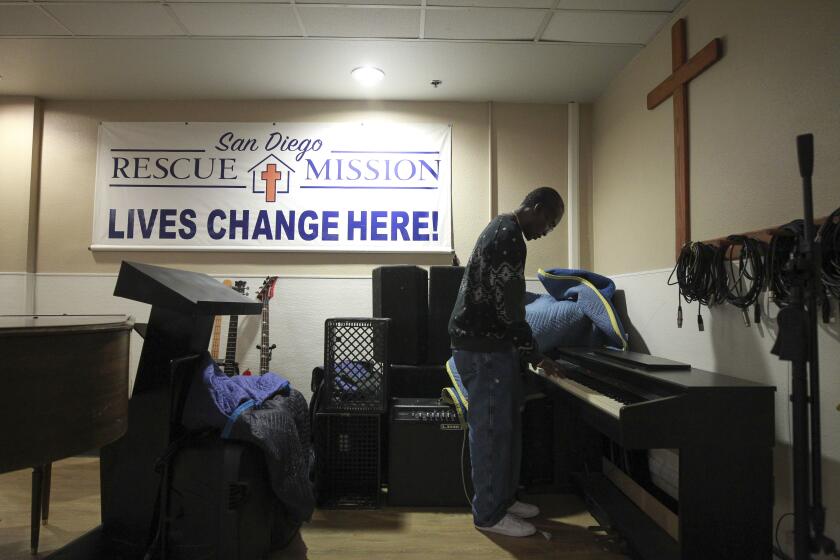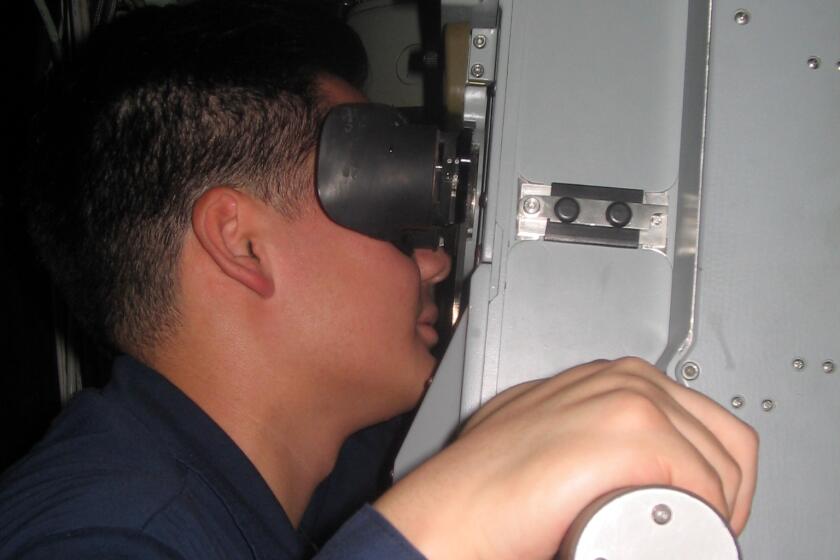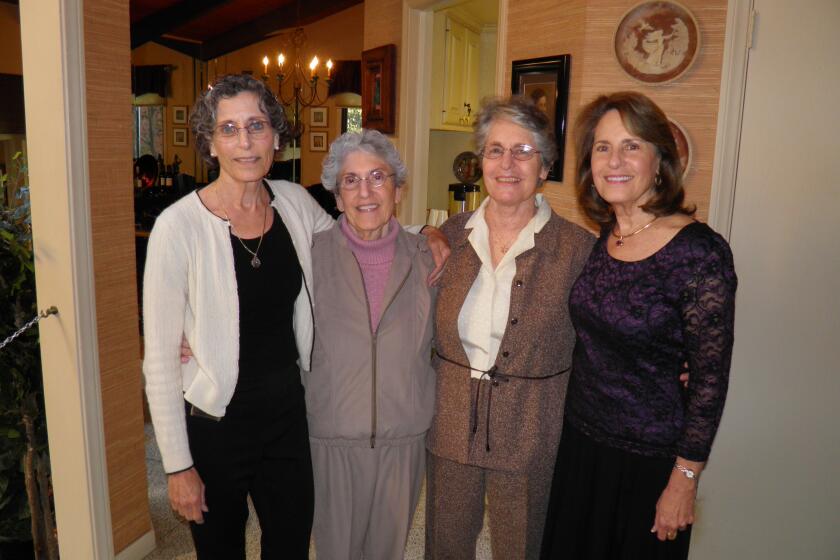Opinion: Genome sequencing can lead to life-changing care for infants. California should make it more available

)
Maienschein represents the 77th District in the California Assembly and lives in 4S Ranch. Frias, M.D., is president and CEO of Rady Children’s Hospital and Health Center, and lives in Carmel Valley. Kingsmore, M.D., is president and CEO of Rady Children’s Institute for Genomic Medicine (RCIGM). He lives in Coronado.
Innovative medical technology is constantly being developed, and with it comes the possibility for incredible breakthroughs in modern medicine. California has never seen scientific advancements within closer reach than they are today.
For critically ill infants hospitalized with unexplained rare diseases, the opportunity to benefit from a medical miracle has arrived.
We provide this platform for community commentary free of charge. Thank you to all the Union-Tribune subscribers whose support makes our journalism possible. If you are not a subscriber, please consider becoming one today.
Genetic disease is a leading cause of infant death in the United States. Without prompt and precise diagnosis, babies suffering from rare diseases often undergo unnecessary tests that offer no answers and treatments that are ineffective.
When severe genetic disease goes undetected or is inappropriately treated, it can lead to irreversible disabilities that in some cases prove fatal.
However, rapid whole genome sequencing is a comprehensive and cutting-edge test that can provide a precise diagnosis and lead to targeted life-changing care.
An advanced method of rapid whole genome sequencing has cut the time to obtain results down to a matter of days, compared to the weeks it can take to receive results from standard genetic tests.
Rapid whole genome sequencing analyzes the entire genetic makeup of a critically ill newborn to identify genetic variations responsible for causing rare diseases.
Having a fast, precise diagnosis to guide personalized care can make all the difference for critically ill newborns and their families.
Over the past five years, research and clinical work done by Rady Children’s Institute for Genomic Medicine, in collaboration with children’s hospitals nationwide, has shown that using rapid whole genome sequencing to diagnose and guide the care of babies hospitalized with rare diseases can reduce suffering and infant mortality while significantly decreasing hospital stays and health-care costs.
In 2018, Assemblymember Brian Maienschein, co-chair of the Rare Disease California Caucus, secured $2 million in state funding for a pilot program called Project Baby Bear. This allowed doctors at five hospitals to perform rapid whole genome sequencing for critically ill infants in intensive care and enrolled in Medi-Cal.
Among high-risk infants with rare genetic diseases, time to treatment is crucial. Project Baby Bear provided doctors with vital diagnoses that empowered them to make life-altering medical decisions with certainty.
Rady Children’s Hospital-San Diego, the only hospital in the region dedicated to pediatric care, took the lead on Project Baby Bear and continues to serve children across San Diego, Imperial and Riverside counties.
Over the course of 18 months, Project Baby Bear successfully sequenced 178 babies at five hospitals across the state to show that not only did rapid whole genome sequencing provide crucial information to guide individualized care, but it resulted in shorter hospital stays and fewer unnecessary procedures for a net cost savings.
Results from Project Baby Bear showed the significant impact rapid whole genome sequencing had in detecting rare diseases in newborns. Sequencing for critically ill babies in Project Baby Bear resulted in 513 fewer days spent in the hospital, 11 fewer major surgeries performed and 16 fewer diagnostic tests required. And Project Baby Bear more than paid for itself by saving an estimated $2.5 million in health-care savings above the state’s investment.
Project Baby Bear clearly demonstrated the capabilities of rapid whole genome sequencing to improve outcomes for these children. Yet the majority of babies simply do not have access to this advanced testing.
Currently, only a few select private health insurance companies cover this type of testing so children’s hospitals, relying on grants funds and philanthropy, can afford to underwrite this only on a very limited basis. This creates an unnecessary disparity in pediatric health care.
This is why Assemblymember Maienschein has partnered with Rady Children’s Hospital-San Diego to introduce Assembly Bill 114: The Rare Disease Sequencing for Critically Ill Infants Act. AB 114 would expand access to this crucial testing by qualifying rapid whole genome sequencing as a Medi-Cal-covered benefit for babies hospitalized in intensive care.
This will greatly increase the number of babies who can benefit from this advanced testing.
Not only will this expand availability to more families, regardless of ability to pay, but it will also reduce state spending by eliminating many unneeded procedures, treatments and longer hospital stays.
Closing the gap in access to this transformative testing is vital to raising the quality of care for California’s critically ill babies.
By providing rapid whole genome sequencing access under Medi-Cal, our state will become the first in the U.S. in allowing access to rapid whole genome sequencing to every critically ill child who needs life-changing rapid precision medicine.
Get Weekend Opinion on Sundays and Reader Opinion on Mondays
Editorials, commentary and more delivered Sunday morning, and Reader Reaction on Mondays.
You may occasionally receive promotional content from the San Diego Union-Tribune.






